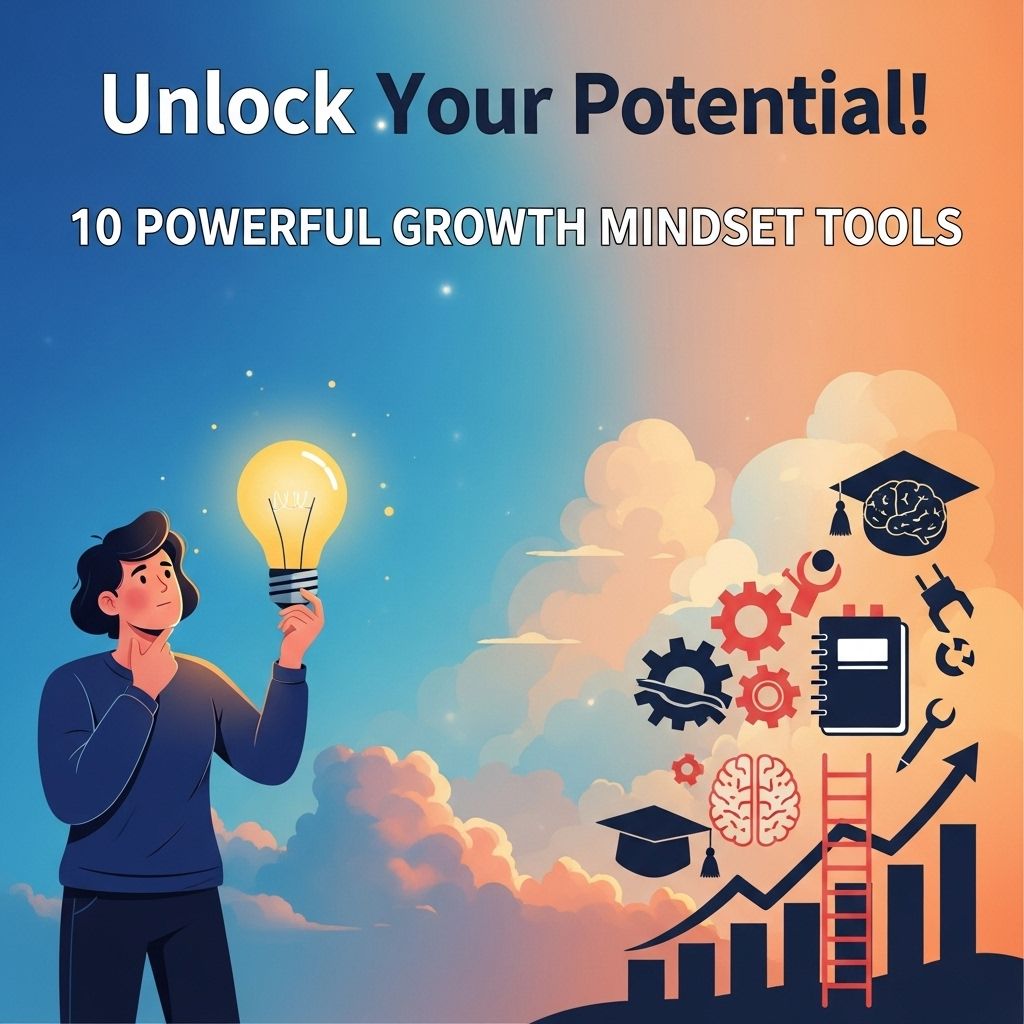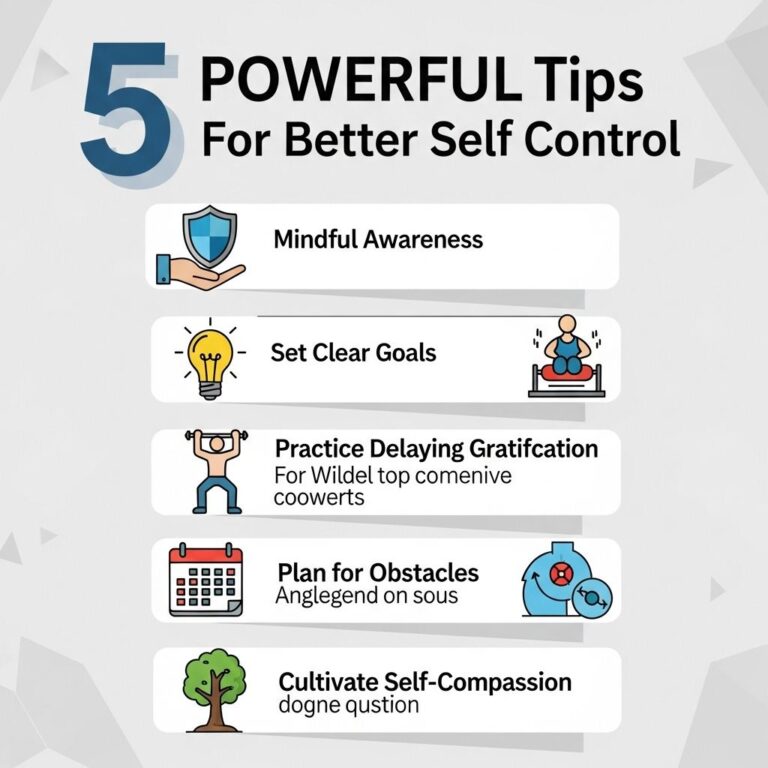Embracing a growth mindset can fundamentally transform your approach to challenges, setbacks, and learning. Coined by psychologist Carol Dweck, the concept of a growth mindset is rooted in the belief that our abilities and intelligence can be developed through dedication and hard work. This perspective fosters resilience, encourages continuous learning, and promotes a love for challenges. In today’s rapidly evolving world, leveraging tools that support the cultivation of a growth mindset is essential. Here’s an exploration of ten powerful growth mindset tools that can empower you to harness your potential and reach new heights.
Table of Contents
Understanding the Growth Mindset
Before diving into the tools, it’s crucial to understand what a growth mindset entails. Individuals with a growth mindset:
- Believe that their abilities can be improved through effort and persistence.
- View challenges as opportunities for learning.
- Embrace feedback and criticism as a means for growth.
- Persist in the face of setbacks, viewing them as a natural part of the learning process.
1. Journaling
Journaling is a powerful tool that fosters self-reflection and personal growth. By regularly documenting thoughts, feelings, and experiences, you can gain insights into your patterns of thinking and behavior.
How to Start Journaling:
- Set aside time each day for reflection.
- Focus on both successes and challenges.
- Ask yourself questions like, “What did I learn today?” or “How can I improve?”.
2. Goal Setting Frameworks
Using structured goal-setting frameworks like SMART (Specific, Measurable, Achievable, Relevant, Time-bound) can help you define clear objectives and stay motivated. This clarity allows you to track progress and celebrate small victories along the way.
SMART Goals Example:
| Criteria | Example |
|---|---|
| Specific | Increase coding skills. |
| Measurable | Complete one coding project every month. |
| Achievable | Allocate 5 hours a week for coding practice. |
| Relevant | Enhances career prospects in software development. |
| Time-bound | Achieve this within 6 months. |
3. Mindfulness Practices
Mindfulness techniques, such as meditation and deep breathing exercises, can improve focus and emotional regulation. These practices enhance awareness, enabling you to catch negative thought patterns and replace them with constructive beliefs.
Simple Mindfulness Exercise:
- Find a quiet space and sit comfortably.
- Close your eyes and focus on your breathing.
- Observe any thoughts that arise without judgment.
- Redirect your focus back to your breath.
4. Continuous Learning Platforms
Online learning platforms like Coursera, Udemy, and Khan Academy provide access to a vast range of courses. Engaging in lifelong learning nurtures intellectual curiosity and helps you stay adaptable in an ever-changing environment.
Course Selection Tips:
- Choose courses that challenge your current skill level.
- Explore diverse subjects outside your comfort zone.
- Set a schedule to complete courses consistently.
5. Networking and Mentorship
Building relationships with other professionals can open doors to new opportunities and insights. Seeking out mentors who embody a growth mindset can provide invaluable guidance and encouragement on your journey.
Steps to Finding a Mentor:
- Identify individuals in your field whose work you admire.
- Attend industry events and engage in conversations.
- Reach out to potential mentors with a clear agenda.
6. Embracing Challenges
Consistently stepping outside your comfort zone is vital for fostering a growth mindset. Seek out challenges, whether they are new projects at work or skill-building activities like public speaking.
Ways to Challenge Yourself:
- Volunteer for a leading role in a project.
- Participate in hackathons or competitions.
- Join a public speaking group like Toastmasters.
7. Positive Affirmations
Using positive affirmations can rewire negative thought patterns. Repeating affirmations helps reinforce beliefs in your ability to grow and succeed.
Examples of Affirmations:
- I am capable of learning new skills.
- Challenges are opportunities for growth.
- I embrace feedback to improve.
8. Feedback Loops
Constructive feedback is a cornerstone of growth. Creating a feedback loop with peers or mentors allows for an ongoing dialogue about your performance and areas for improvement.
How to Create a Feedback Loop:
- Regularly request feedback after completing tasks.
- Be open to criticism and use it to drive improvement.
- Offer feedback to others to create a culture of growth.
9. Time Management Techniques
Effective time management allows for better focus on personal and professional development. Techniques such as the Pomodoro Technique or time-blocking can enhance productivity and ensure that you allocate time for growth activities.
Pomodoro Technique Steps:
- Choose a task to work on.
- Set a timer for 25 minutes.
- Work on the task until the timer goes off.
- Take a 5-minute break and repeat.
10. Visualization Techniques
Visualizing your goals and the steps necessary to achieve them can enhance motivation and prepare your mind for success. Visualization techniques help you to mentally practice skills and prepare for challenges.
How to Practice Visualization:
- Find a quiet space to sit comfortably.
- Close your eyes and visualize yourself achieving your goals.
- Engage all your senses to make the visualization vivid.
Conclusion
Incorporating these tools into your daily routine can significantly enhance your growth mindset and overall personal development. Whether through journaling, continuous learning, or embracing challenges, the journey towards a growth-oriented life is both rewarding and transformative. By actively engaging with these techniques, you can cultivate resilience, adaptability, and an enduring passion for learning, ensuring you thrive in any environment.
FAQ
What is a growth mindset?
A growth mindset is the belief that abilities and intelligence can be developed through dedication, hard work, and learning.
How can I develop a growth mindset?
You can develop a growth mindset by embracing challenges, persisting in the face of setbacks, and viewing effort as a path to mastery.
What are some effective growth mindset tools?
Effective tools include journaling, positive affirmations, visualization techniques, goal-setting strategies, and seeking feedback.
How does a growth mindset impact success?
A growth mindset fosters resilience, encourages continuous learning, and ultimately leads to greater success in personal and professional life.
Can I cultivate a growth mindset in others?
Yes, you can encourage others to adopt a growth mindset by providing constructive feedback, celebrating their efforts, and modeling a growth-oriented approach.
What are the benefits of a growth mindset?
Benefits include increased motivation, improved performance, enhanced problem-solving skills, and a greater capacity for collaboration.









